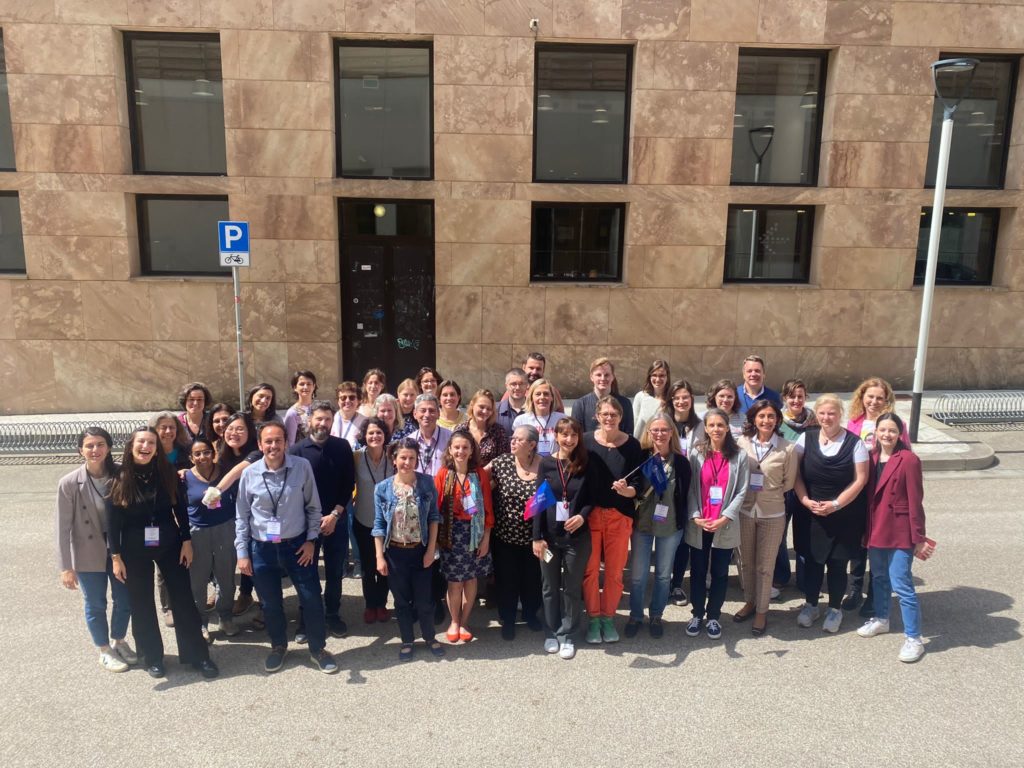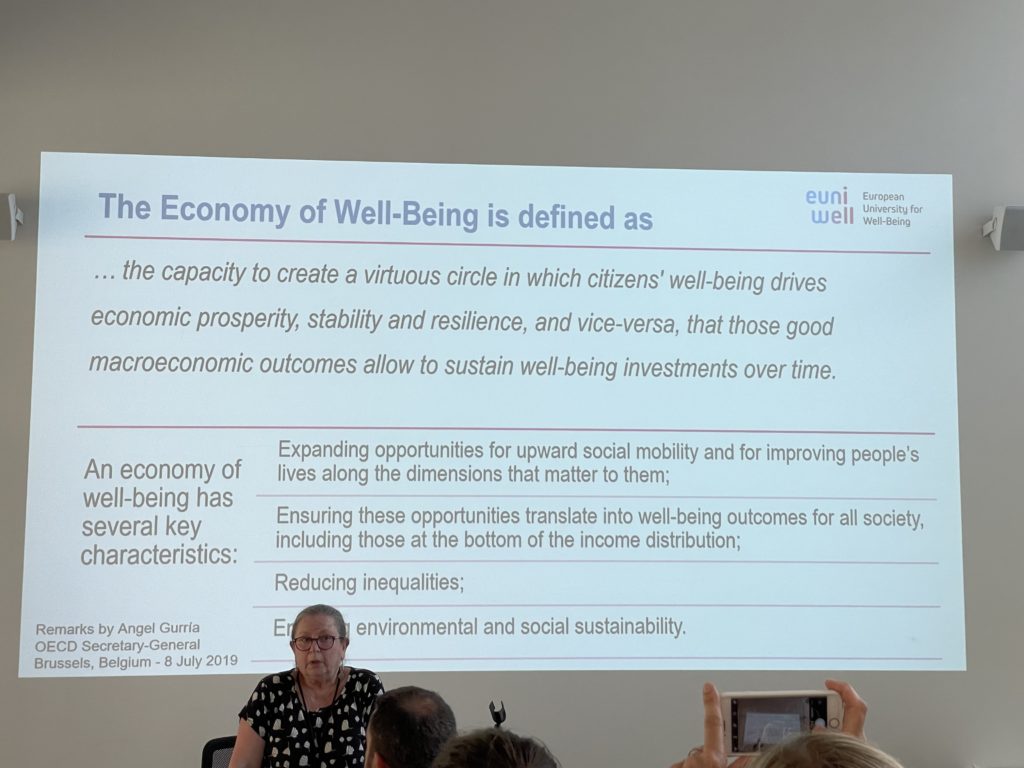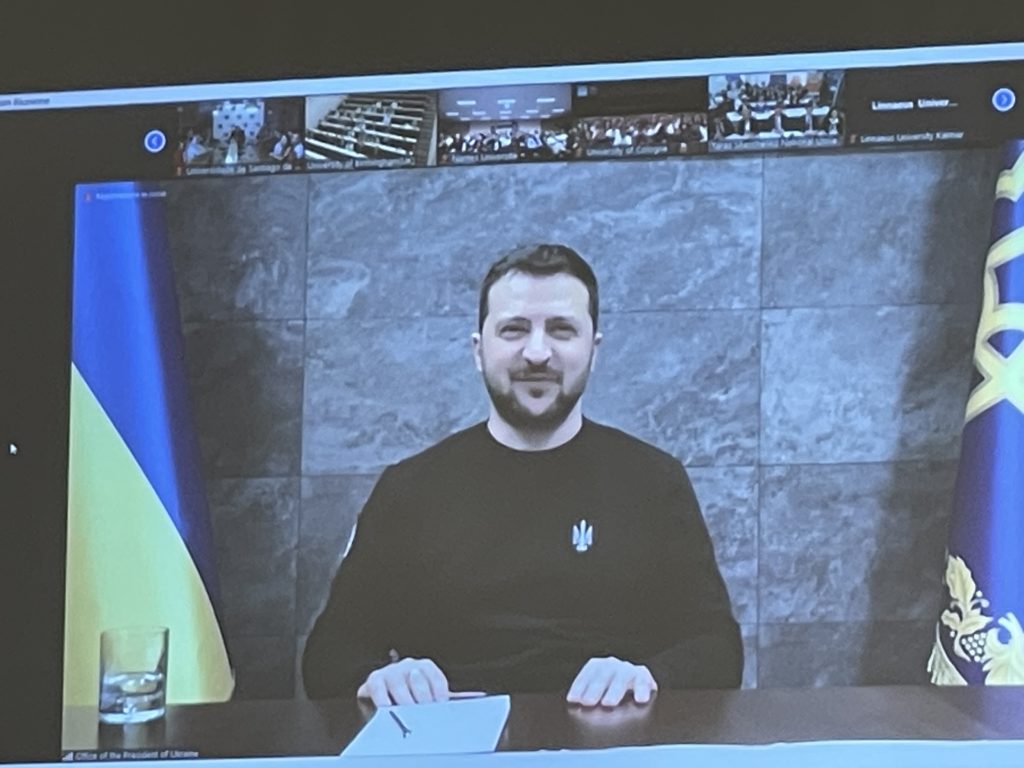
Programme Manager Liz Goodyear went to the recent EUniWell staff training week and tells us about everything she got up to in Italy.
The EUniWell staff training week, hosted by the University of Florence, provided a unique and invaluable opportunity for the University of Birmingham, alongside 10 other universities from across Europe, to engage in a week-long exploration of critical issues facing our societies today. The conference was structured around a diverse range of topics including intercultural communication, conflict management, inclusion and diversity, the economy of well-being, expanding opportunities, upward social mobility, reducing inequalities, and using games to support policymaking.
Professor Leonardo Boncinelli, a distinguished academic in the field of learning through play, facilitated a dynamic and interactive learning experience. The session highlighted the potential of games to support policy-making. We had the opportunity to participate in several interactive games that allowed us to explore complex issues in a fun and engaging way. These games provided valuable insights into the challenges and opportunities associated with policymaking, and they also highlighted the potential of games as a tool for promoting education and social change.

Activities
The activities allowed us to delve into complex issues and explore diverse perspectives, enabling us to gain a deeper understanding of the challenges and opportunities associated with each topic. The conference emphasised the significance of effective intercultural communication in fostering mutual understanding and respect, a vital aspect of creating inclusive and diverse communities that value different perspectives and experiences. We also explored strategies for conflict management, including mediation and negotiation techniques, which can be applied in a variety of contexts.

Well-being
Beyond the individual level, well-being is crucial for the overall functioning of communities and societies. When individuals have a high level of well-being, they are more likely to contribute positively to their communities, fostering social connections, and engaging in prosocial behaviours. Well-being also has a ripple effect, as individuals with high levels of well-being are more likely to positively influence the well-being of those around them, creating a virtuous cycle of positive impact.
From a societal perspective, prioritizing well-being has significant implications for public health, healthcare systems, and policy-making. Investing in initiatives and policies that promote well-being can lead to improved health outcomes, reduced healthcare costs, and increased overall quality of life for individuals within a society. Additionally, addressing inequalities and ensuring equal access to opportunities for well-being is crucial for creating a fair and just society and improving social mobility.
President Volodymyr Zelenskyy
Our participation in the conference offered the unique opportunity extended to members of the consortium to celebrate Europe Day by attending a zoom call with President Volodymyr Zelenskyy of Ukraine. The call included a discussion with panellists from the EUniWell alliance focussing on peace, unity and solidarity with Ukraine and how the alliance can support European values and well-being during these turbulent times.

The conference allowed us to form lasting connections with colleagues from across Europe and gain a deeper appreciation for the importance of international collaboration and cooperation. By participating in this conference, the University of Birmingham has reinforced its commitment to creating a diverse, inclusive, and forward-thinking academic community that values collaboration and innovation.
This blog was written by Elizabeth Goodyear, Programme Manager at City-REDI / WMREDI, University of Birmingham.
Disclaimer:
The views expressed in this analysis post are those of the authors and not necessarily those of City-REDI, WMREDI or the University of Birmingham.
